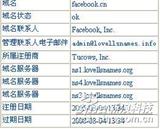UN conference ends, countries expect to end US domain name control
The United States has been controlling the allocation of IP addresses and domain names on the Internet, which determines how people access websites and emails around the world. At the United Nations Internet conference held on Monday, countries around the world discussed this issue.
Although few people criticized the U.S. for directly managing the Internet, everyone was very clear about the role Americans played in domain name strategy.
Brazilian Minister of Culture Gilberto Gil said at the meeting: "The Internet is transnational and cannot be controlled by the power of any one country" "The Internet should be territory for everyone in the world."
In fact, this seminar was only an annual routine meeting to discuss issues such as spam and cheaper Internet access solutions, with no power to make decisions. Most efforts to seek change were merely using the meeting to exert pressure on the U.S., forcing it to retreat.
The crux of the Internet problem discussed at the conference was the control of key domains, such as ".com" and ".org" domains. If a computer looks up a website, it will inevitably be influenced by the U.S.
For the U.S. government, it invested a large amount of funds in the early stages of Internet development, so it has jurisdiction over domain names. Currently, domain names are controlled by the non-profit Internet Corporation for Assigned Names and Numbers (ICANN) based in California, and the U.S. holds its veto power.
In fact, dissatisfaction among countries towards the U.S. began at the first Internet Governance Forum held in Athens last year. Originally, the meeting was supposed to discuss telecommunications links and technical standards. However, attendees expressed their dissatisfaction and criticism of ICANN and the U.S. government.
Critics worry that domain names under ICANN's management are actually very dangerous. If the U.S. government takes a political stance against a website, it would only take changing a few database entries for a country's websites to disappear instantly.
However, the president and CEO of ICANN insisted that the organization is international. But just looking at their three important board members makes it clear - they are all high-ranking officials of the U.S. government.
More than 1000 representatives from governments, businesses, and civil organizations attended this four-day seminar. The meeting also discussed topics such as Internet security, language diversity, access fees, and privacy rights.



